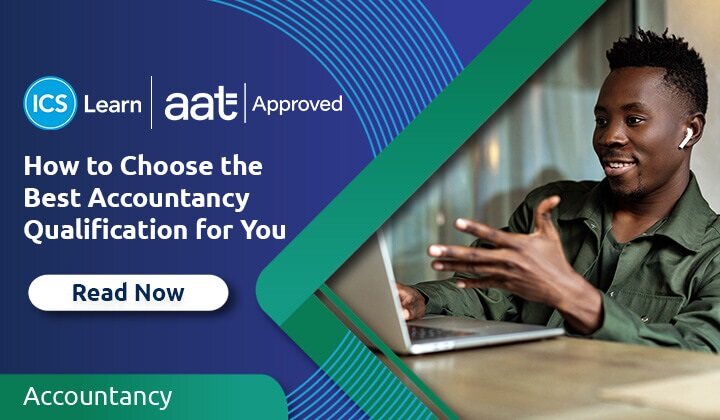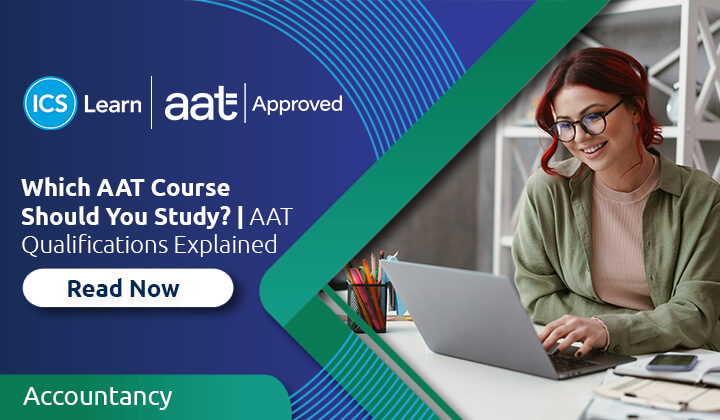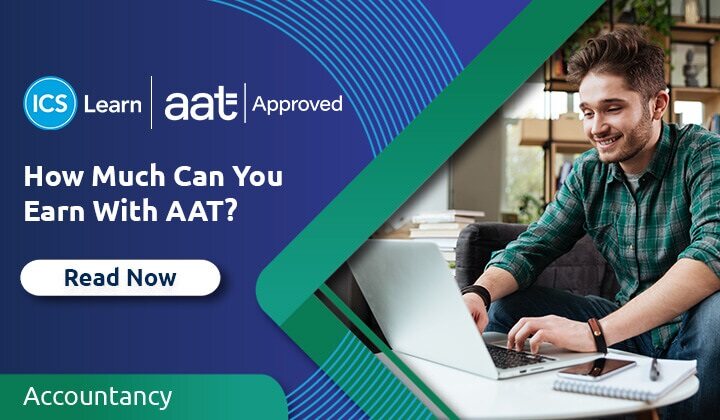Accountancy

Top 10 Skills You'll Develop with an AAT Qualification: Level 2, 3 & 4

28 February 2024 - 3 min read
Over 80,000 professionals gain AAT qualifications annually and there’s a reason why. Highly regarded and recognised by employers worldwide, AAT qualifications are best known for equipping professionals with the expertise and unique skillset required of those working as both accountants and in general financial roles.
AAT qualifications are available at levels 2, 3 & 4 and the skills gained are dependent on the level of course you take. In this blog we’re going to discuss the top 10 skills that you’ll develop with an AAT Qualification, across levels 2, 3 & 4.

What are AAT qualifications?
Known as the Association of Accounting Technicians, AAT is the leading body for accounting professionals. It is committed to developing the right qualification that ensure people are equipped to deal with real-life environments, situations and complexities. AAT want their learners to feel empowered and encouraged to do their jobs to the best of their ability.
AAT define their courses as “recognised and valued by employers as vocational and technical qualifications that prepare students for the world of work and for working specifically in accountancy and finance roles.”

What does an Accountant do?
An accountant has a wide range of responsibilities and sometimes they can vary depending on the firm you’re working for, or whether you are self-employed or not. In general, however, an accountant will spend most of their time:
Preparing accounts and completing tax returns:
At the end of the financial year, LTD’s must prepare their accounts and complete their company tax returns, often these companies will outsource an accountant for this.
Auditing financial information and statements:
Regular audits must be complete across business accounts to ensure there’s no disparities or irregular behaviours.
Creating business plans and presenting reports:
Often accountants will work with different clients to create business plans that best suit their financial needs. They’ll often present them to their customers.
Managing accounts receivable and accounts payable:
Accountants will oversee records of monetary in goings and outgoings.
Providing financial advice:
Accountants are often first point of contact when it comes to managing finances across global, multi-departmental companies.
Now you know the ins and outs of an accountant’s general responsibilities, lets discuss some of the skills you’ll require to be successful in the role and at what qualification level you will gain them.

What skills will you develop with an AAT Level 2 qualification?
1) Basic costing
Costing is arguably one of the most important skills you will need to master as an accountant as it directly impacts the financial decisions that a business makes. Costing covers capturing, recording and analysing the costs included in the production of either a product or service.
Different types of costing include:
- Material costs
- Labour costs
- Expenses and more
2) Double entry bookkeeping
Ensuring each transaction is recorded in two ways, including debits and credits, double-entry bookkeeping is a vital skill that will be developed with an AAT qualification.
Necessary for creating a bigger financial picture which allows for increased strategic decision-making, double-entry bookkeeping will reduce bookkeeping errors. It’s also the preferred style of bookkeeping by banks, buyers and investors due to the transparency it offers, so it’s definitely a skill worth learning.
3) Finance administration
Due to the level of the course, you’ll gain a basic understanding of finance administration, which will provide a lot of what you need to know for an entry-level financial role. This includes creating and updating spreadsheets, as well as managing both accounts payable and accounts receivable.

What skills will you develop with an AAT Level 3 qualification?
4) Understanding, calculating and verifying tax
An accountant’s job role consists of a lot of value added tax (VAT) and upon completion of the level 3 qualification, you’ll be skilled in ensuring businesses, clients and employers are compliant and following laws around tax.
Additionally you’ll learn how to correctly complete returns to HMRC, which includes the principles of payroll and providing necessary company financial information.
5) Account management
An accountant will often have more than one client, which means the number of accounts can vary quite considerably. Because of this, accountants need to be skilled in task management, timekeeping and be extremely diligent.
With many spinning plates, it can be easy for oversights and mistakes to occur, and a successful accountant must be able to keep these to a minimum where possible. Account management includes dealing with business costs, budget deviations and financial decision making.
6) Preparing financial accounts
Financial statements are described as written records about a business’s financial activities. The most common are cash flow statements, balance sheets and profit and loss sheets. Accountants must be able to create these on behalf of companies and to an extremely high quality, to ensure there’s no discrepancies or oversights.

What skills will you develop with an AAT Level 4 qualification?
7) Critically analysing business performance
Upon completion of the AAT Level 4 qualification, learners will be skilled in critical analysis and should be able to analyse most businesses performance and operations.
Critical analysis is vital when making future decisions about the financial state of a business, including investments, costs and reductions.
8) Recommending accounting strategies
Having an overall understanding of the main accounting strategies allows accountants to correctly recommend the ones in which will best suit a specific business. Accountants must be skilled in various accounting strategies, know how to implement them, their advantages and disadvantages so that they can advise correctly and effectively.
9) Budget process
Budgeting processes can be tricky, especially when it comes to analysing and reporting on them as often, key stakeholders will expect full transparency on both the successes and areas that require improvement.
The AAT Level 3 qualification teaches students about the budgetary process, how it works and the relevant considerations. Accountants will have to create budgets for their clients and customers, each unique to the specific account.
10) Credit and debt management
Credit management allows accountants to manage the cash-flow of a business. This includes interlinked processes and workflows such as following up on payments due and managing invoices. Credit management often includes the creation of:
- Credit control policies
- Credit checks and
- Payment plans
On the flip side, debt management includes the creation and oversight on the debt collection process, which often includes collecting overdue payments or similarly, the creation of a unique payment plan.
Often, accountants are able to provide debt counselling, as well as assisting customers with different variations of bankruptcy. Because of this, credit and debt management is a vital skill required of any accountant.

Develop your skills with an AAT qualification
If you’re new to the world of accounting and looking to gain a qualification or a current accountant looking to upskill, we hope this blog has provided some insight into the different industry relevant qualifications available and the skills that you will be able to obtain while studying at each level.
Become AAT qualified and enrol on a course with ICS Learn today.
Download Your Free AAT Course Guide
Get information on our AAT courses
Share this post
How to Choose the Best Accountancy Qualification for You
AAT, ACCA, CIMA, CIPFA, ICEAW, ICAS... There are loads of accountancy qualifications out there, but how do you choose the one that's right for you?
Which AAT Course Should You Study? AAT Qualifications Explained
AAT qualifications are a great way to get into accountancy or build on your existing skills and knowledge, but how do you know which level is right for you?
How Much Can You Earn With AAT?
Ever wondered how an AAT qualification could impact your earning potential? Check out the results of their salary survey in this infographic.















